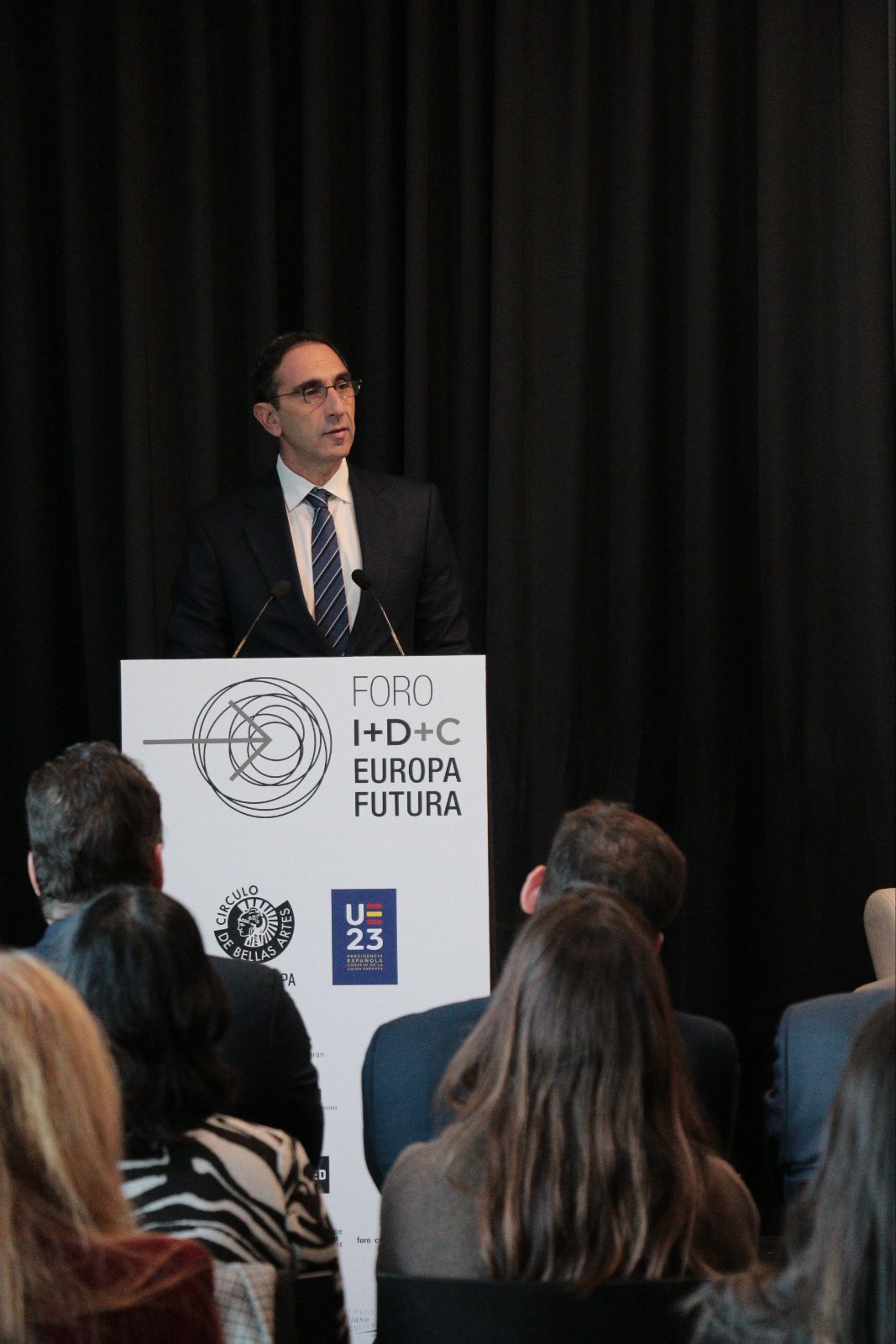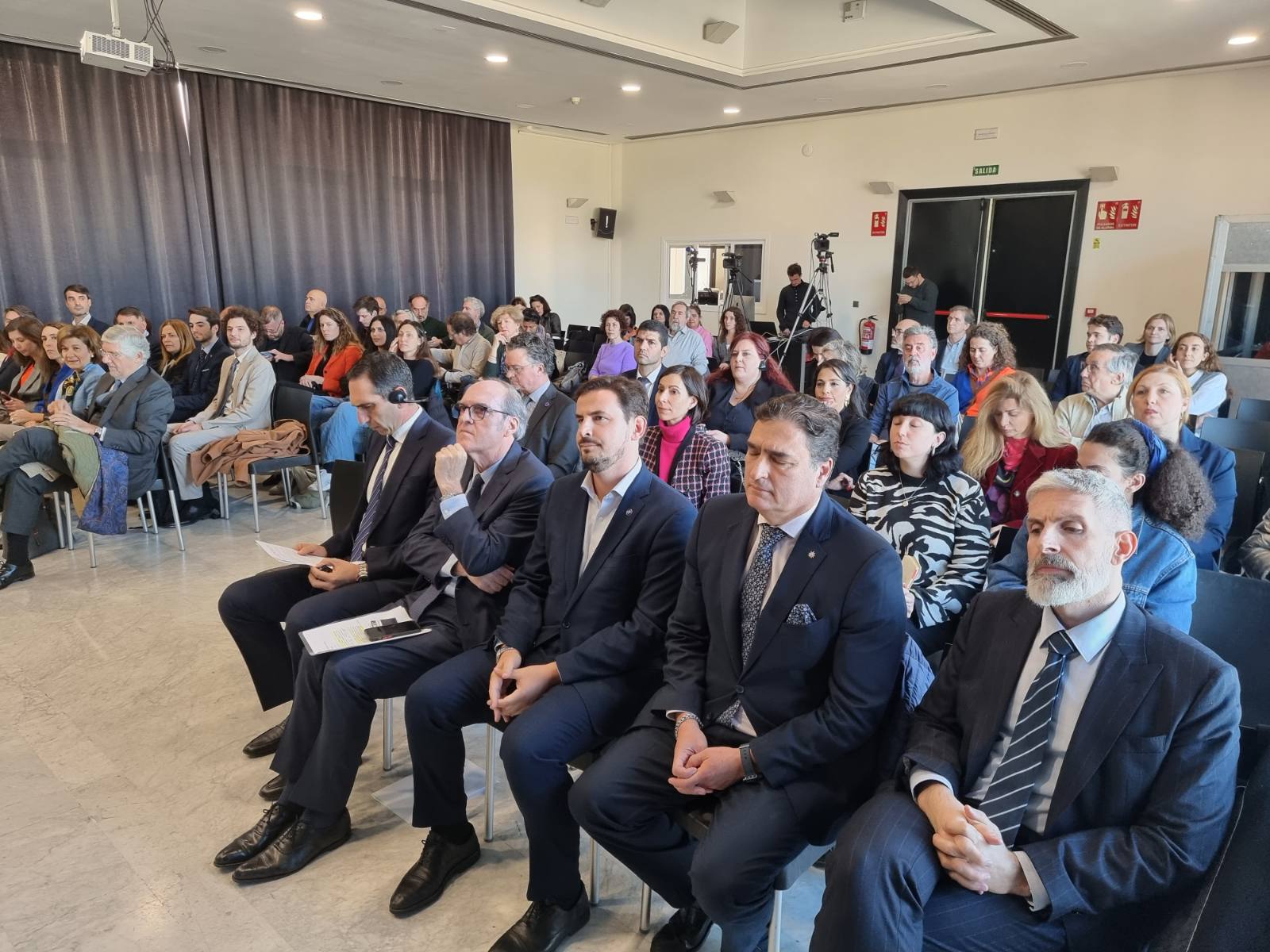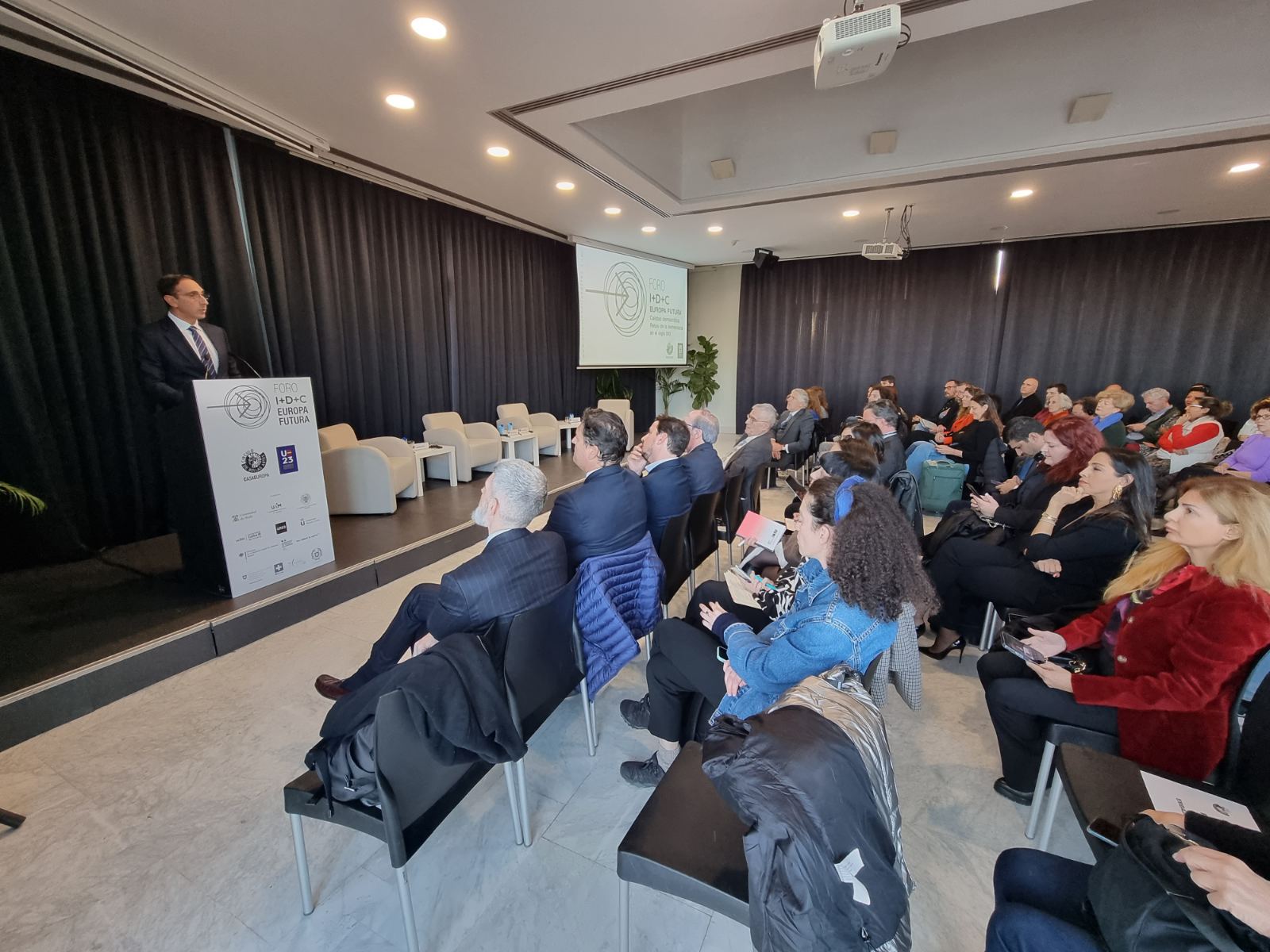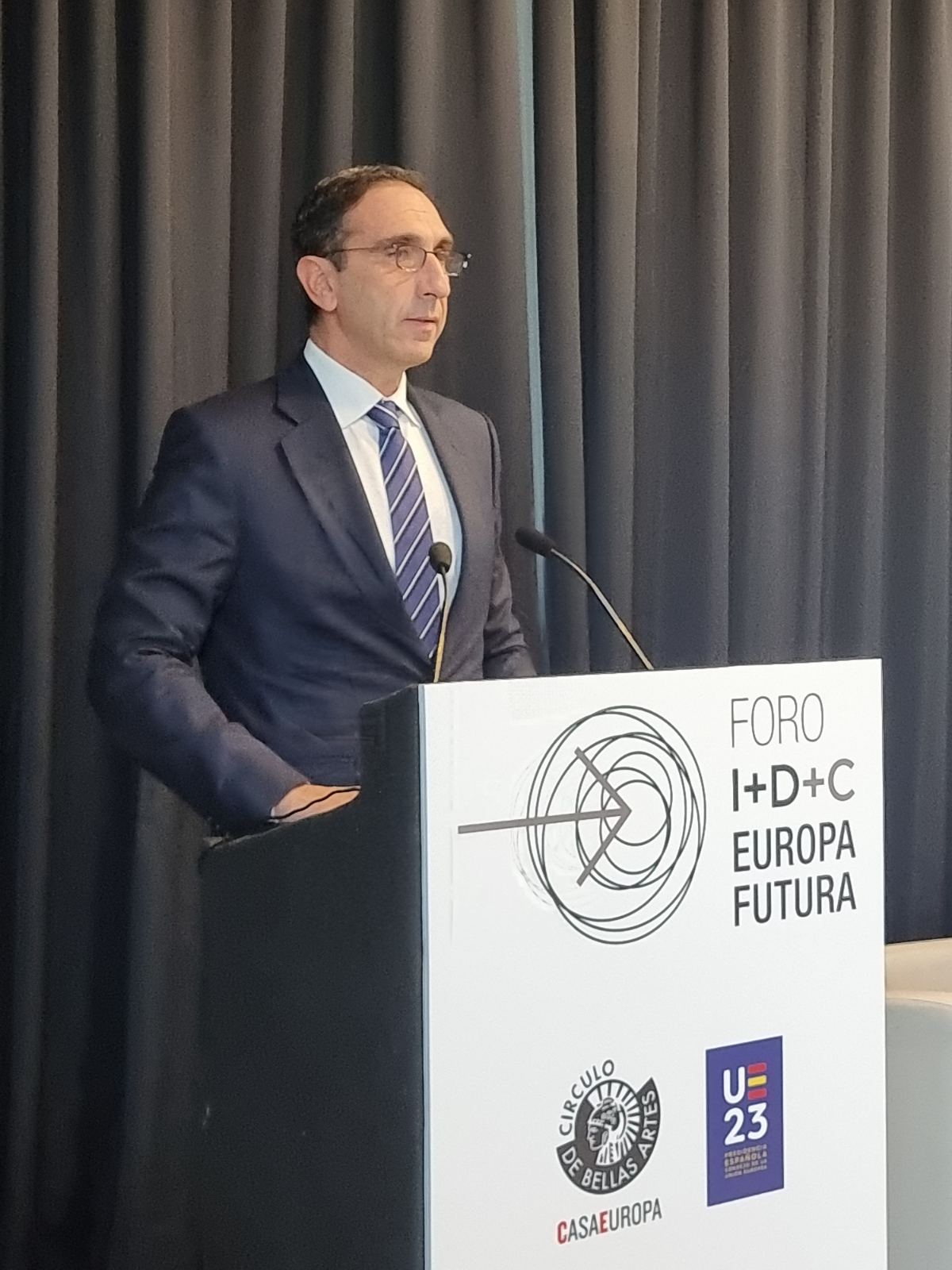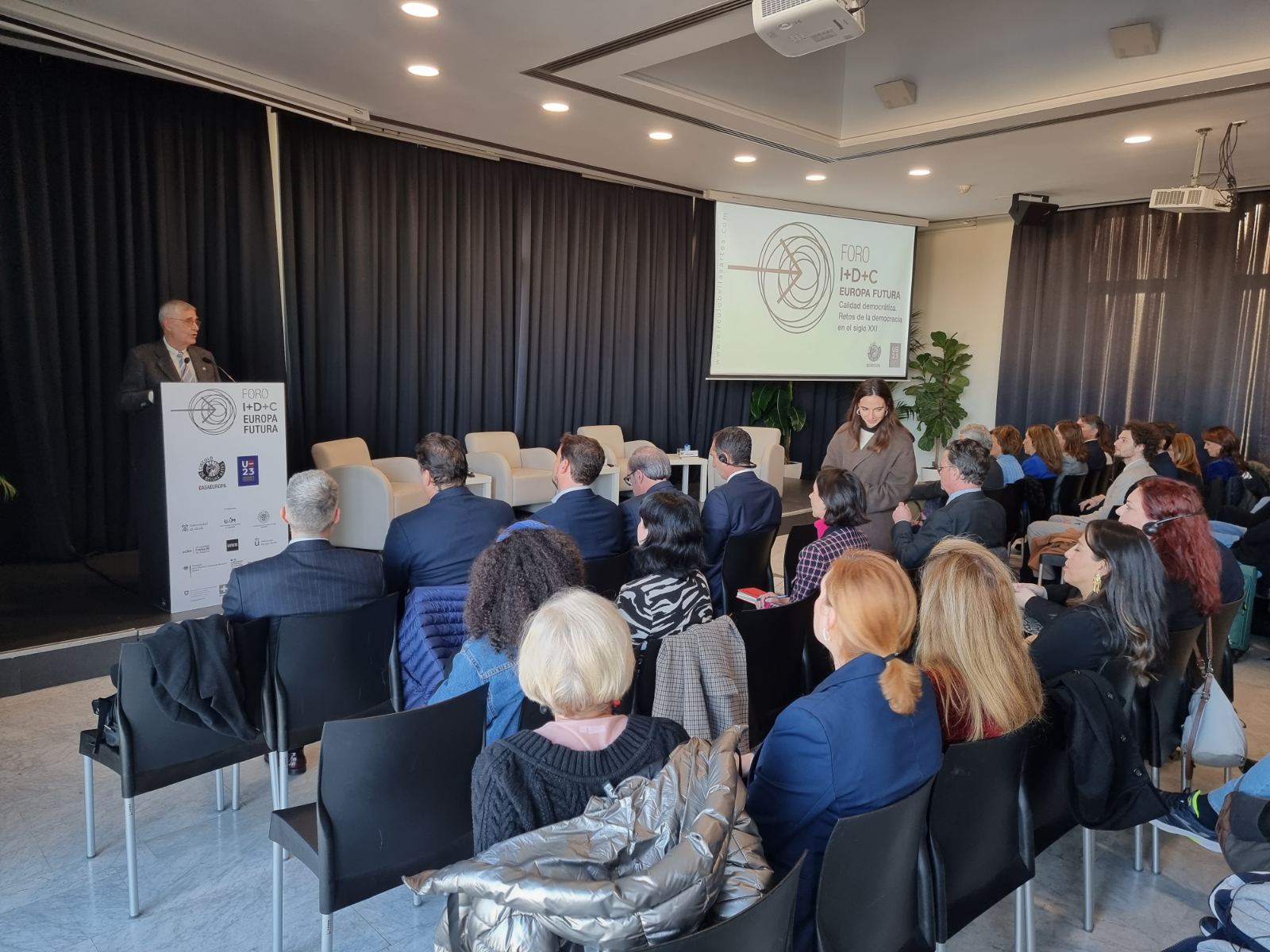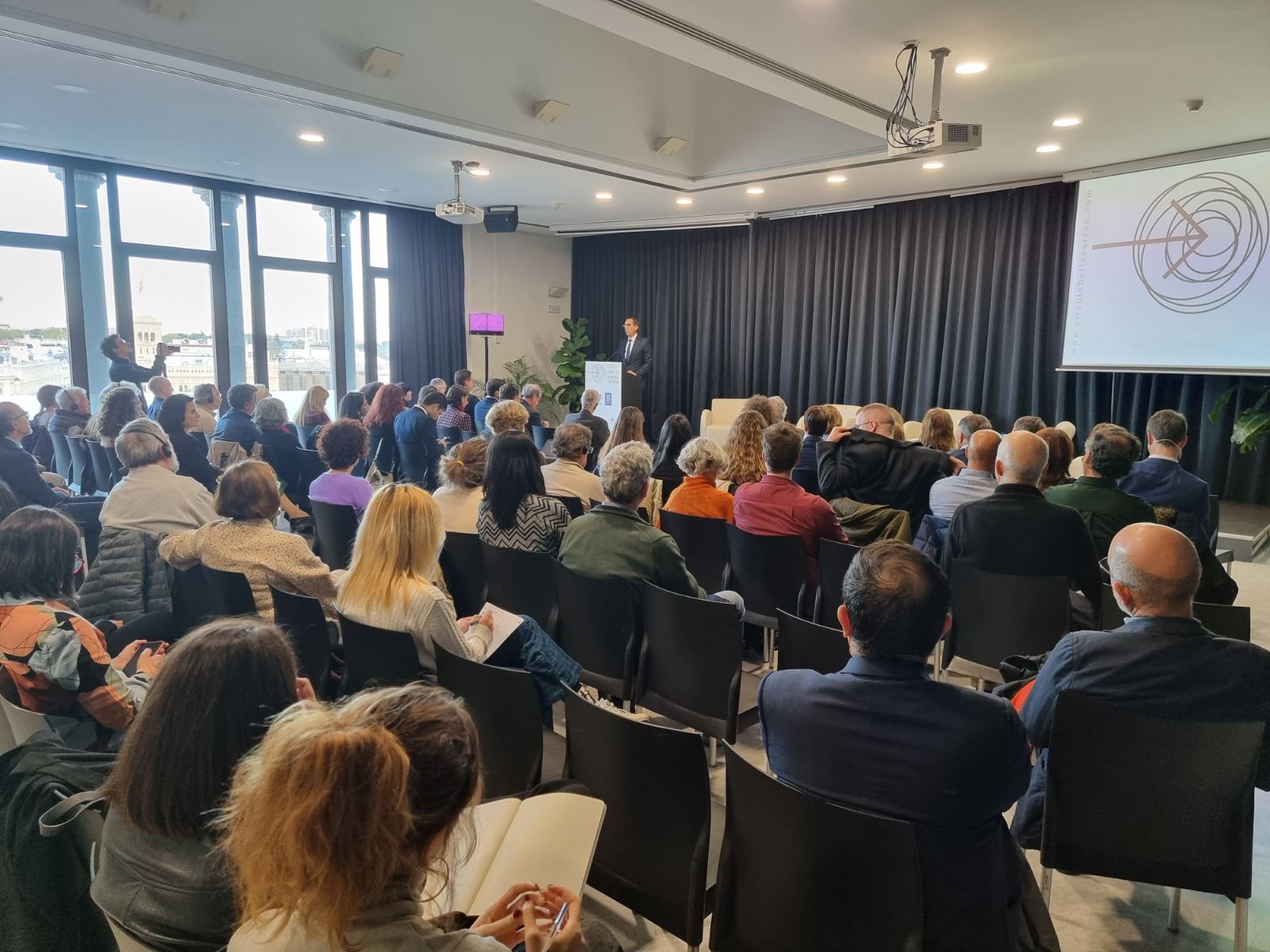Press Releases
07-11-2023 19:08
Address of the Minister of Interior, Mr Constantinos Ioannou, to the Democratic Quality Forum, titled “Democratic Quality: Challenges for Democracy in the 21st century”
Cultural Center “Circulo de Bellas Artes”, Madrid
It is truly with great pleasure that I am here with you today, addressing this Forum, which could not have taken place at a better time. We are faced with so many challenges nowadays, and it is truly an honour to be here to discuss with you the need for democratic quality, the urgence for a participatory and inclusive democracy, while safeguarding human rights, freedom of speech and pluralism, in an era where citizens need to feel safe to participate in decision making, in electoral procedures and in local governance. As the ancient Greeks set the pillars for democracy, combining the two Greek words that mean people (demos) and rule (kratos), it is imperative to remember that democracy is not an abstract notion, it is a force driven by the people to bring prosperity and quality in their lives.
Nowadays, democracy faces various challenges, depending on the political, social and economic context of each country. In some countries, the principles and institutions of democracy may be undermined by Governments and policies that violate the rule of law, restrict Press freedom and citizens’ rights. Growing economic inequality threatens the equality and representation of lower-income social groups in the democratic process. Extreme ideologies threaten social cohesion with the risk of division, while corruption can undermine citizens’ trust in public institutions and politicians.
In particular, the challenges facing the modern world include, among others, misinformation on the internet, transparency in election advertising and the financing of political parties, the ever-increasing abstention of citizens from the electoral process and the discrediting of the political system. The spread of fake news is a growing problem that can affect citizens' ability to make the right political decisions.
The geopolitical events taking place at the moment, the escalation of the immigration problem and the slowdown of the economy as a result of inflation, are strengthening the rise of extreme elements that call the democratic systems into question. International migration requires policies that are fair and humane, while maintaining the safety and well-being of societies. The coronavirus pandemic and the wars taking place in the neighbourhood of the EU have demonstrated the need to ensure the integrity of electoral processes, as democracy cannot be conditional. At the same time, climate change is a serious challenge that requires collective action and determination.
The main concern of nations should be understanding the needs of civil society in this rapidly changing environment, promoting robust political competition and reducing the democratic deficit. In this context, the continuous evaluation and modernisation of the electoral legislative framework is required, as well as the exploitation of the possibilities of technology, always with cyber security in mind and the facilitation of the participation of all groups of citizens. The goal should be stronger political parties, more representative electoral systems and fair electoral procedures, so that the citizen feels that their vote really counts and have an active role in political events.
Another step required is to foster quality journalism and independent media. People need free media to provide them with accurate information and informed analysis in order to -amongst others - determine if Governments are in line with good governance, and that they are doing a good job or whether improvements need to be made. Where journalists and news organisations are free to do their work independently and safely, societies thrive and communities are able to recognise problems that must be addressed. We are often witnesses of attacks on the human rights of journalists and those working in media organisations and this undoubtedly has a cascading effect on society as a whole, as law-enforcement whilst accountability must always be preserved. The perception that assassinations only happen far from the public eye, primarily targeting foreign war correspondents is not true. Many examples illustrate that the lack of safety and integrity for people who provide us with news and information, do not have frontiers.
We are also overwhelmed with a plethora of information that challenge our long-held perceptions of information management. Over the past decade, we have seen a crisis of authenticity emerging. We live in a world where anyone can publish an opinion or perspective, whether true or not, and have that opinion amplified within the information marketplace. Misinformation, disinformation and propaganda are now automated and data-driven and are also often user-generated and very easy to be launched over social media. Hence, these have become more impactful and more targeted.
Our Governments need to collaborate to protect media freedom, by adapting to new realities and being responsive to threats, as they emerge. Forging coalitions and establishing realistic strategies to enhance the independence of media, editorial freedom and strengthening of pluralism is crucial for the general wellbeing of our democracy.
Having in mind that modernisation, in terms of progress, is always welcome when it comes to the greater benefit of our society, I would like to convey to you the current efforts implemented in Cyprus for a reform of our local government system. With a set of new legislations and procedures under way, we are aiming to establish more powerful municipalities and community clusters, with an administrative and financial independence similar to the guidelines set by the European Charter of Local Self-Government, with strengthened internal audit mechanisms and transparency, increased level of responsibilities and greater citizen participation in decision-making. This way, decision making will be more transparent, citizens will be further enabled to submit questions and receive answers and actively participate in issues that involve them. A great concern posed by sceptics today is, if too much democracy could result in procrastination and inertia. To the contrary, I believe synergies, active participation and collaboration are necessary, to face the adressed challenges.
I convey my very best wishes for an effective, successful and productive Forum.
Thank you.
(MKy/ASP/NG)
Relevant Press Releases

12-07-2024 08:50
Sirens will sound on the 15th and 20th of July 2024

11-06-2024 08:55
Elections of Members of the European Parliament 2024

